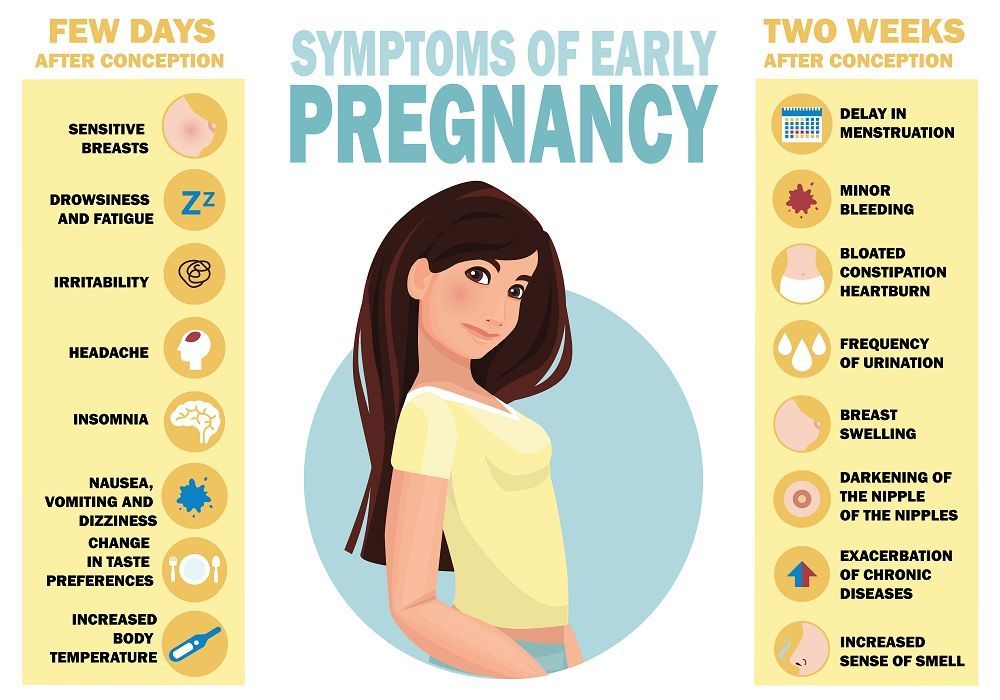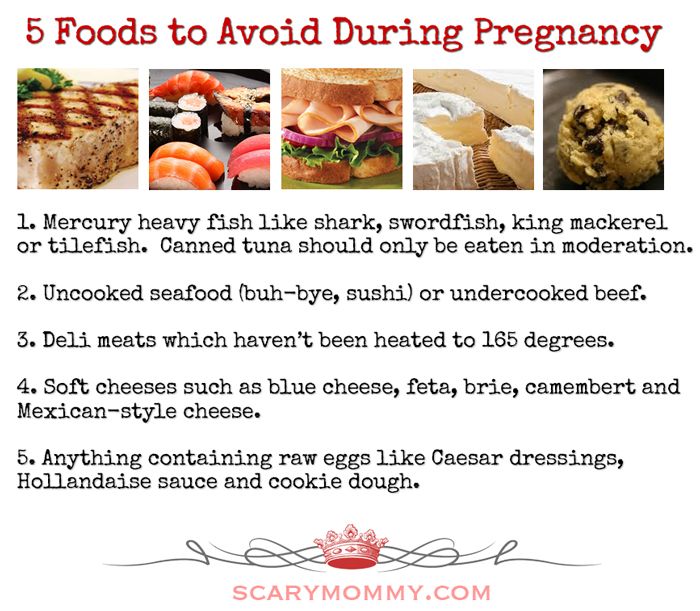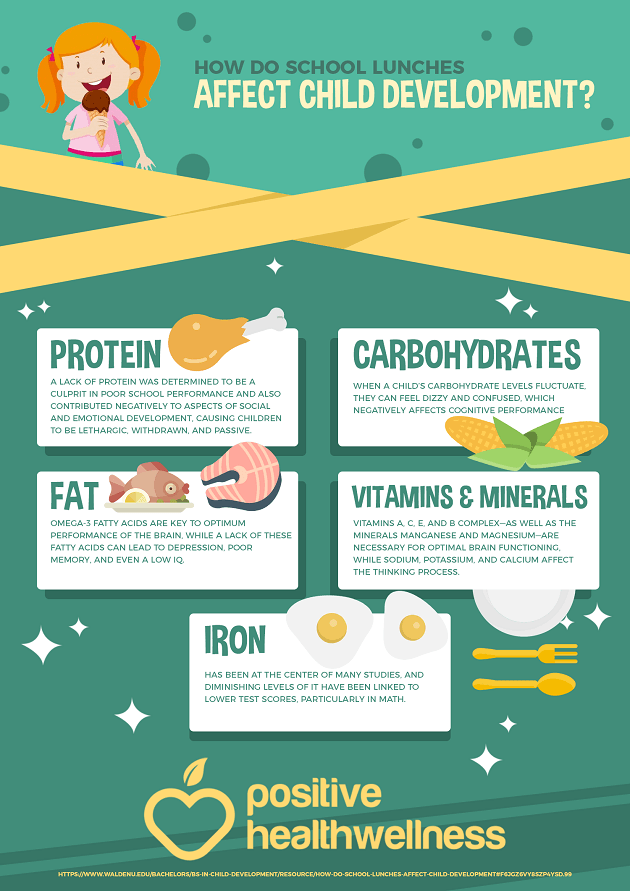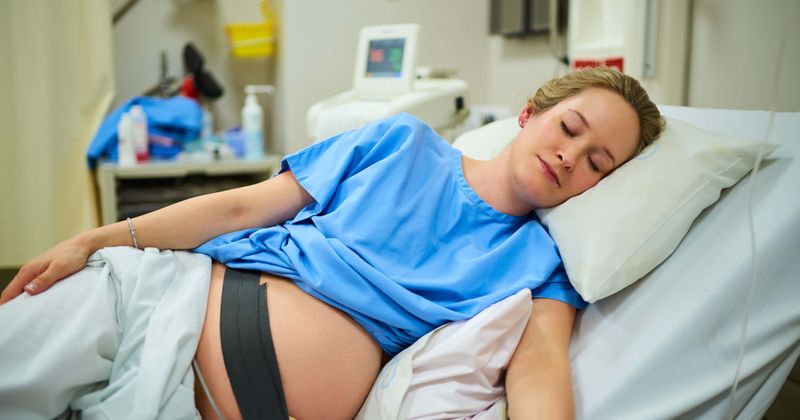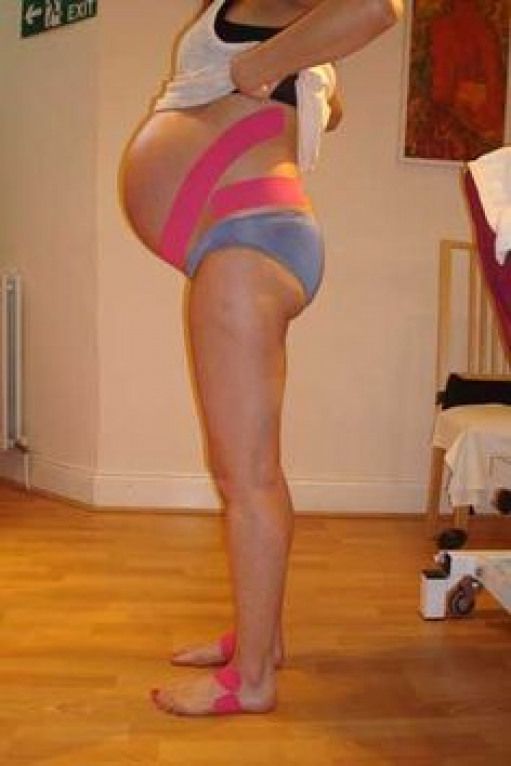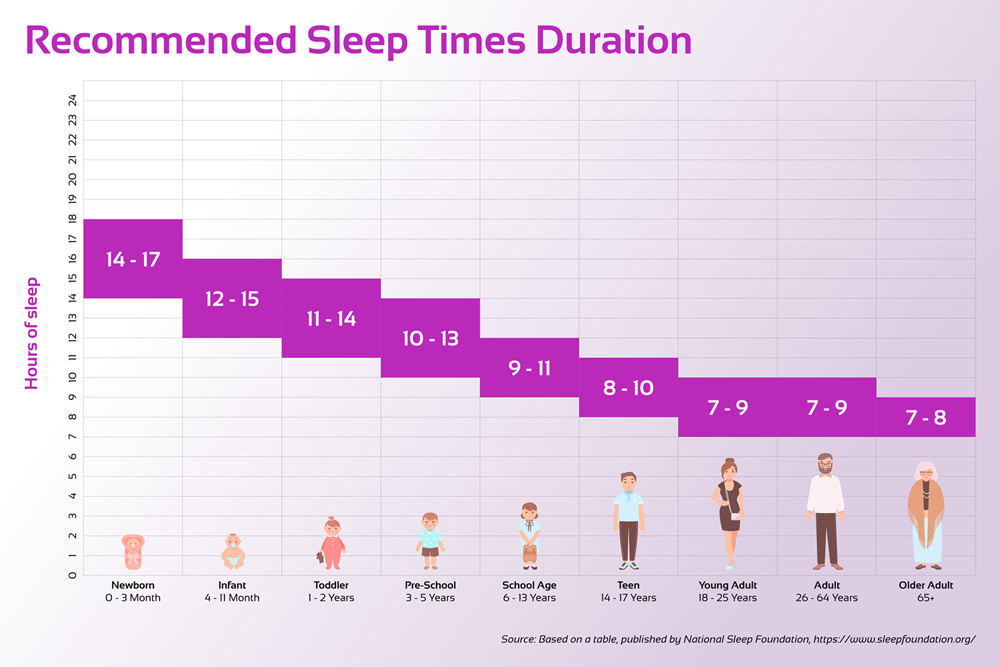What are the signs of one month pregnancy
1 Month Pregnant: Symptoms and Fetal Development
You might have noticed some changes in your body and started to wonder, “Could I be … pregnant!?” Or, you might not have observed any signs of pregnancy other than your period being late. If you have your suspicions, you'll probably want to take a home pregnancy test. If the result is positive, congratulations! Read on to find out more about early pregnancy symptoms, how your baby is developing when you’re one month pregnant, and what else is in store for you this month.
Common Pregnancy Symptoms at 1 Month Pregnant
At one month pregnant, you may not experience many — or any — symptoms. However, some of the early signs of pregnancy at one month pregnant can include:
A missed period. If you have a regular menstrual cycle, this is perhaps the most telling sign of pregnancy. You might first suspect you could be pregnant when your period is late, and then when it never arrives at all.
Mood changes. When you become pregnant, your hormone levels start to rise dramatically, and this can sometimes leave you feeling more emotional than usual. It’s also common to experience a range of moods — anything from being anxious and overwhelmed to feeling excited and ecstatic — when you find out you are pregnant. Talk to your loved ones about your feelings, and talk to your healthcare provider if you have any concerns.
Bloating. The surge of pregnancy hormones can lead to bloating, which you might even mistake for a normal symptom of PMS. Eating more fiber and getting regular exercise can help relieve bloating.
Cramps. Some moms-to-be get light uterine cramping in the early days and weeks of pregnancy. These sensations can sometimes feel like menstrual cramps, so you might think you're about to get your period. If cramps are painful or are bothering you, ask your healthcare provider to recommend suitable pain relief options.
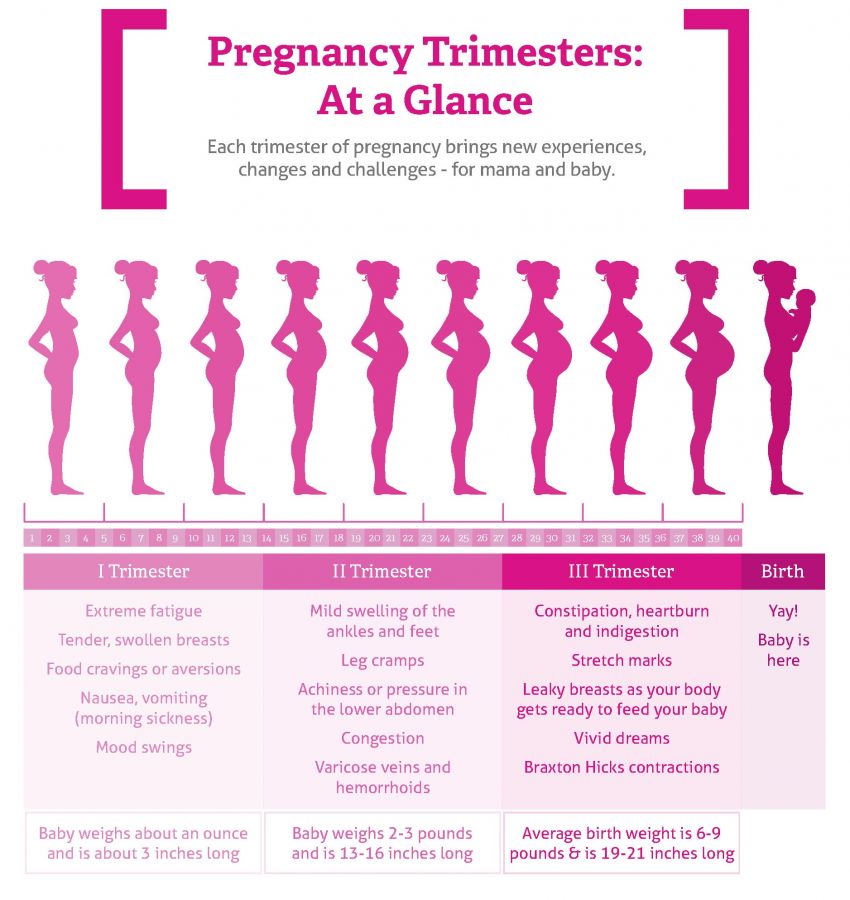
Spotting. If you notice some spots of blood on your underwear, it could be what’s called implantation bleeding. This light spotting can happen when the fertilized egg implants itself in the uterine lining in early pregnancy. Wearing a panty liner can help prevent any accidental leaks or stains.
Frequent urination. When you become pregnant, the amount of blood in your body starts increasing. This means your kidneys have to work overtime to process the extra fluid, which then ends up in your bladder. Although some early symptoms of pregnancy may ease up over time, this might not be one of them. Don’t cut back on your fluid intake — it’s important to stay hydrated — but think about trying to pee before you leave your home or any time you might be away from a restroom for any length of time, such as before a meeting or a car trip.
Sore or tender breasts. Your breasts may be sensitive or even sore right now, but this symptom may subside in a few weeks as your body gets used to the hormonal changes taking place.
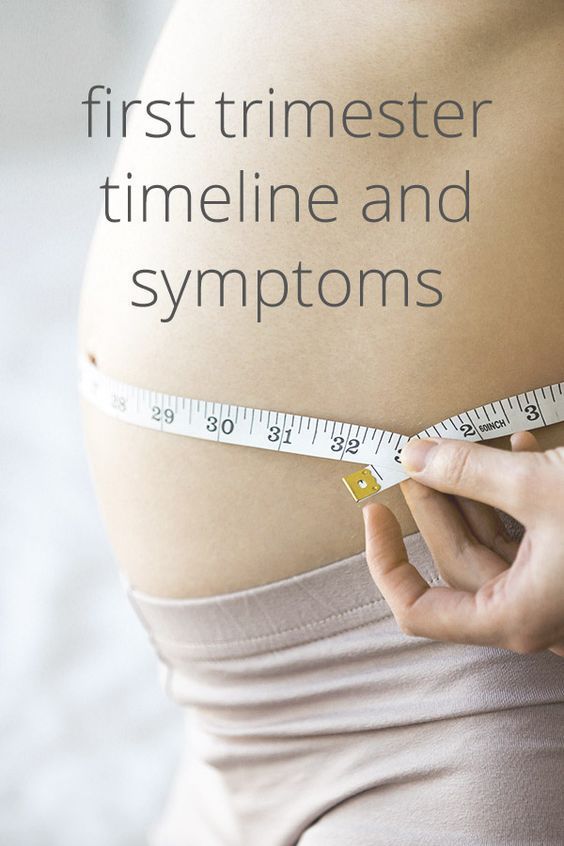
Fatigue. It’s not uncommon to feel a little more tired than usual, and the hormone progesterone may be to blame. Take it easy as much as you can, and know that many moms-to-be experience a burst of energy once they enter the second trimester.
Nausea. The dreaded morning sickness (nausea with or without vomiting) often doesn’t hit until after the first month of pregnancy, but some moms-to-be may get it a bit sooner, and some lucky women may never experience any queasiness associated with early pregnancy at all. Try to stay hydrated, take a multivitamin, and sip ginger ale or ginger tea to help soothe your stomach.
Constipation. If you’re feeling a bit blocked up, chalk it up to those rising levels of hormones, which can slow down your digestive system. Prenatal vitamins, which typically contain iron, may also be a factor. Ask your healthcare provider for advice on how to help get things going again.
Food aversions.
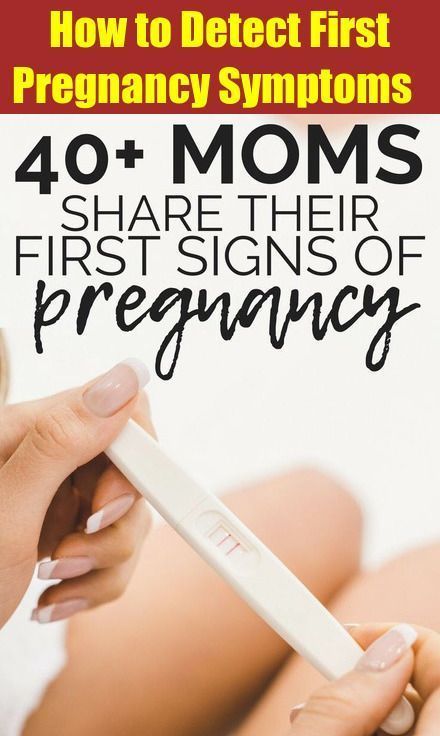 When you’re newly pregnant, you might find that certain odors and flavors aren’t quite as appealing as they used to be. Feeling nauseous when you encounter certain foods and smells can sometimes go hand in hand with morning sickness. Use a kitchen fan when cooking, and ask your partner to take out the garbage if certain smells start to bother you.
When you’re newly pregnant, you might find that certain odors and flavors aren’t quite as appealing as they used to be. Feeling nauseous when you encounter certain foods and smells can sometimes go hand in hand with morning sickness. Use a kitchen fan when cooking, and ask your partner to take out the garbage if certain smells start to bother you.
How Is Your Baby Developing This Month?
After conception, the fertilized egg travels along the fallopian tube to the uterus, where it will implant in the uterine lining.
The egg divides into a bunch of cells, some of which become the embryo and some of which eventually become the placenta, which will provide nourishment for your baby during your pregnancy. The umbilical cord also forms between the embryo and the placenta, delivering nutrients and removing waste.
The upcoming month is a time of rapid growth for your little one, as internal organs, bones, and tiny limbs are beginning to form. One quick note on the terminology you might see when reading up on baby development: During the first eight weeks, your little one may be referred to as an embryo in medica circles, whereas after this point your baby may be called a fetus until she is born.
One quick note on the terminology you might see when reading up on baby development: During the first eight weeks, your little one may be referred to as an embryo in medica circles, whereas after this point your baby may be called a fetus until she is born.
How Big Is Your Baby When You’re 1 Month Pregnant?
At this stage your baby is teeny-tiny, but by the start of the second month of pregnancy your little one will be about ¼ of an inch long – or about the size of a pumpkin seed.
What Does an Embryo Look Like at 1 Month?
For a glimpse at how your little one might be looking inside your belly at 4 weeks, take a look at this illustration:
Changes to Your Body at 1 Month Pregnant
You probably won’t be noticing any changes to your body just yet, but that doesn’t mean there isn’t a lot going on under the surface.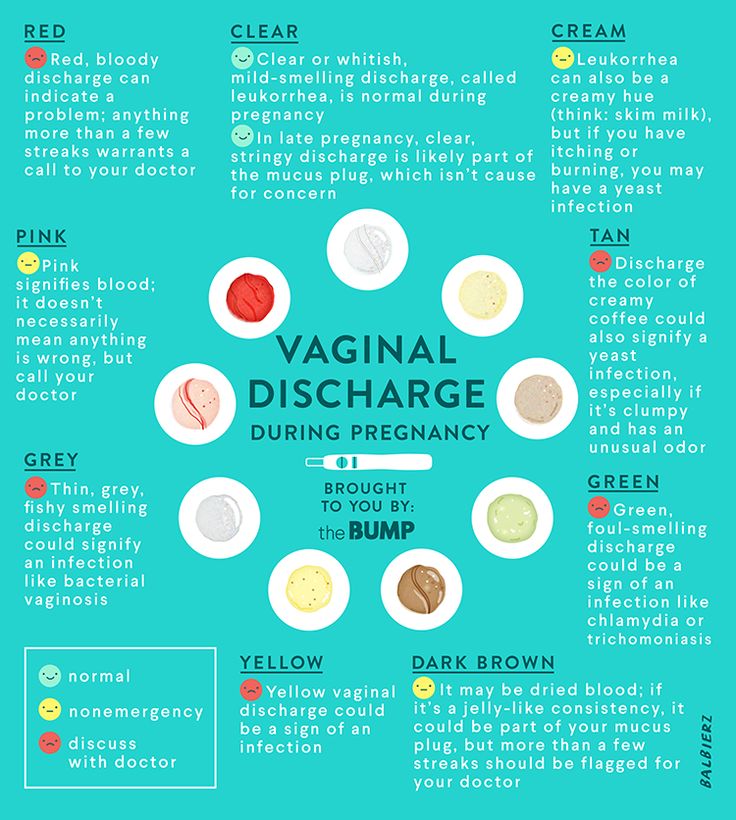 At this point, it’s important to prepare your body for pregnancy and childbirth by paying attention to your overall health and nutrition. This often means taking a multivitamin supplement to make sure you have all the nutrients you and your little one will need for the months ahead.
Talk to your healthcare provider at your first prenatal visit to make sure you’re getting the right amounts of the right vitamins.
It can also be helpful to begin or continue an exercise routine this month. Check in with your provider to make sure your favorite activities are safe during pregnancy, but in general, getting regular exercise can help build the strength and endurance you’ll need throughout your pregnancy.
At this point, it’s important to prepare your body for pregnancy and childbirth by paying attention to your overall health and nutrition. This often means taking a multivitamin supplement to make sure you have all the nutrients you and your little one will need for the months ahead.
Talk to your healthcare provider at your first prenatal visit to make sure you’re getting the right amounts of the right vitamins.
It can also be helpful to begin or continue an exercise routine this month. Check in with your provider to make sure your favorite activities are safe during pregnancy, but in general, getting regular exercise can help build the strength and endurance you’ll need throughout your pregnancy.
How Far Along Are You at 1 Month Pregnant?
At one month pregnant, you’re at the start of the first trimester. Though there is no standard way of grouping pregnancy weeks into months (as they don't fit evenly), the first month usually includes week one through week four of pregnancy.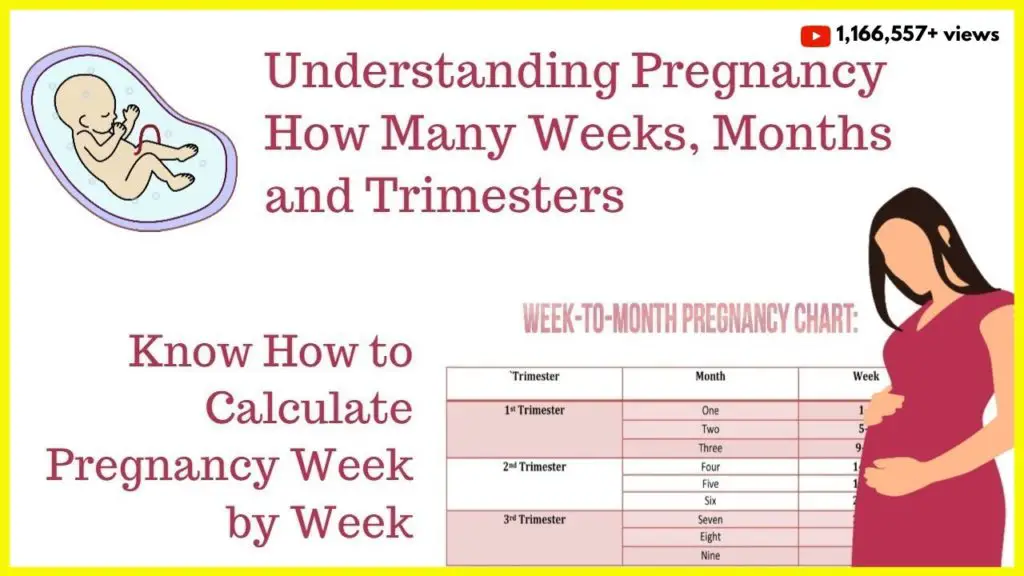 The breakdown of weeks into trimesters also varies; here is a common method we'll follow:
First trimester: 1 to 13 weeks
Second trimester: 14 to 27 weeks
Third trimester: 28 to 40 weeks (or until you give birth)
The breakdown of weeks into trimesters also varies; here is a common method we'll follow:
First trimester: 1 to 13 weeks
Second trimester: 14 to 27 weeks
Third trimester: 28 to 40 weeks (or until you give birth)
How Is Your Due Date Calculated?
At one month pregnant, you’ll be eager to know when your newborn will arrive. Our Due Date Calculator can give you an estimate, but your healthcare provider may be able to give you a more accurate date.
Your due date is calculated as 40 weeks, or 280 days, from the first day of your last menstrual period. Keep in mind that your due date is just an estimate. You may not remember the date of your last period; the length of your menstrual cycle may be shorter or longer than the 28-day average; and it’s very difficult to know exactly when ovulation or fertilization occurred.
Keep in mind, only a small percentage of babies are born exactly on their due date and most babies are born in the two weeks either side of their due date.
Checklist for When You’re 1 Month Pregnant
Research and select a prenatal healthcare provider.
Confirm your pregnancy by taking a home pregnancy test. Read about the pregnancy hormone hCG as it’s what most home pregnancy tests work to detect.
Arrange a doctor’s checkup. Your healthcare provider will confirm your pregnancy and give you guidance on the appointments you’ll need to keep over the coming months.
Speak to your provider about pregnancy nutrition and whether you need to take any prenatal vitamins, such as folic acid.
Download our complete guide to exercising while pregnant, which is brimming with helpful tips, and ask your healthcare provider about what type of exercise is right for your situation. Exercise can help you get a better night’s sleep and can also help with pregnancy body aches and pains.
Quit unhealthy habits like smoking and drinking, and try to reduce stress.
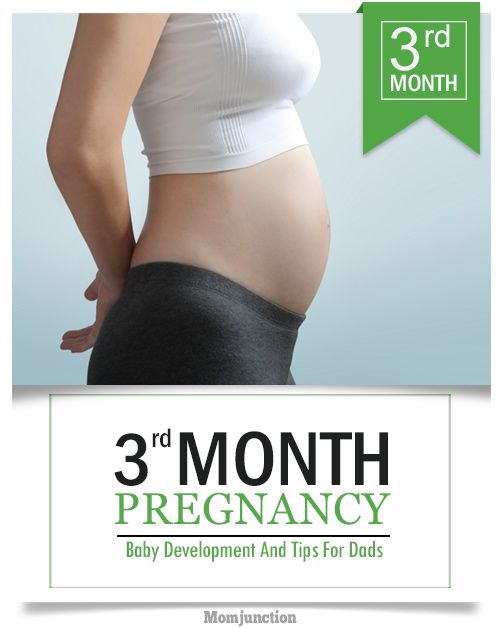
Although rare, it’s a good idea to read up on the signs of an ectopic pregnancy – just in case.
Rest up whenever you can.
If your partner doesn’t know you are pregnant yet, check out our fun ideas for how to announce your pregnancy to your partner.
Speak to your loved ones about how you are feeling. This can be an emotional time, and you might be feeling all kinds of physical symptoms and pregnancy emotions that it may be best to share.
Sign up for even more weekly pregnancy tips here:
Pregnancy Week By Week | First Month Symptoms and Signs
In This Section
- Month by Month
- What happens in the second month?
- What happens in the third month?
- What happens in the fourth month?
- What happens in the fifth month?
- What happens in the sixth month?
- What happens in the seventh month?
- What happens in the eighth month?
- What happens in the ninth month?
- What happens in the tenth month?
What happens in the first month of pregnancy?
Pregnancy is divided into 3 trimesters.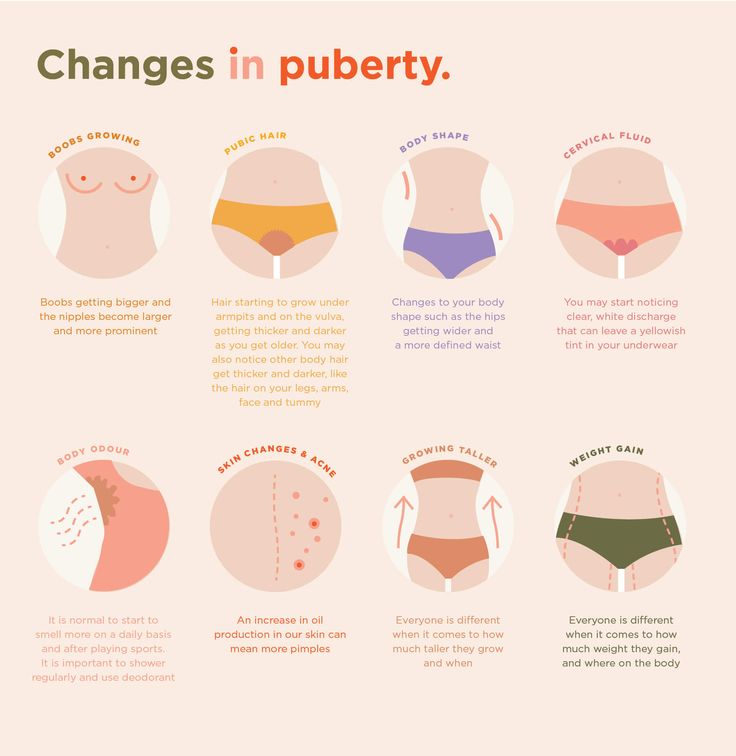 Each trimester is a little longer than 13 weeks. The first month marks the beginning of the first trimester.
Each trimester is a little longer than 13 weeks. The first month marks the beginning of the first trimester.
What’s gestational age?
Pregnancy timing is measured using “gestational age.” Gestational age starts on the first day of your last menstrual period (LMP).
Gestational age can be confusing. Most people think of pregnancy as lasting 9 months. And it’s true that you’re pregnant for about 9 months. But because pregnancy is measured from the first day of your last menstrual period — about 3-4 weeks before you’re actually pregnant — a full-term pregnancy usually totals about 40 weeks from LMP — roughly 10 months.
Many people don’t remember exactly when they started their last menstrual period — that’s OK. The surest way to find out gestational age early in pregnancy is with an ultrasound.
What happens during week 1 - 2?
These are the first 2 weeks of your menstrual cycle. You have your period. About 2 weeks later, the egg that’s most mature is released from your ovary — this is called ovulation. Ovulation may happen earlier or later, depending on the length of your menstrual cycle. The average menstrual cycle is 28 days.
Ovulation may happen earlier or later, depending on the length of your menstrual cycle. The average menstrual cycle is 28 days.
After it’s released, your egg travels down your fallopian tube toward your uterus. If the egg meets up with a sperm, they combine. This is called fertilization. Fertilization is most likely to occur when you have unprotected vaginal sex during the 6 days leading up to — and including the day of — ovulation.
What happens during week 3 - 4?
The fertilized egg moves down your fallopian tube and divides into more and more cells. It reaches your uterus about 3–4 days after fertilization. The dividing cells then form a ball that floats around in the uterus for about 2–3 days.
Pregnancy begins when the ball of cells attaches to the lining of your uterus. This is called implantation. It usually starts about 6 days after fertilization and takes about 3–4 days to be complete.
Pregnancy doesn’t always happen, even if an egg is fertilized by a sperm. Up to half of all fertilized eggs pass out of your body when you get your period, before implantation is complete.
Up to half of all fertilized eggs pass out of your body when you get your period, before implantation is complete.
What are the signs of pregnancy?
For a lot of people, the first sign of pregnancy is a missed period. Most pregnancy tests will be positive by the time you’ve missed your period. Other early pregnancy symptoms include feeling tired, feeling bloated, peeing more than usual, mood swings, nausea, and tender or swollen breasts. Not everyone has all of these symptoms, but it’s common to have at least 1 of them.
Was this page helpful?- Yes
- No
Help us improve - how could this information be more helpful?
How did this information help you?
Please answer below.
Are you human? (Sorry, we have to ask!)
Please don't check this box if you are a human.
You’re the best! Thanks for your feedback.
Thanks for your feedback.
We couldn't access your location, please search for a location.
Zip, City, or State
Please enter a valid 5-digit zip code or city or state.
Please fill out this field.
Service All Services Abortion Abortion Referrals Birth Control COVID-19 Vaccine HIV Services Men's Health Care Mental Health Morning-After Pill (Emergency Contraception) Pregnancy Testing & Services Primary Care STD Testing, Treatment & Vaccines Transgender Hormone Therapy Women's Health Care
Filter By All Telehealth In-person
Please enter your age and the first day of your last period for more accurate abortion options.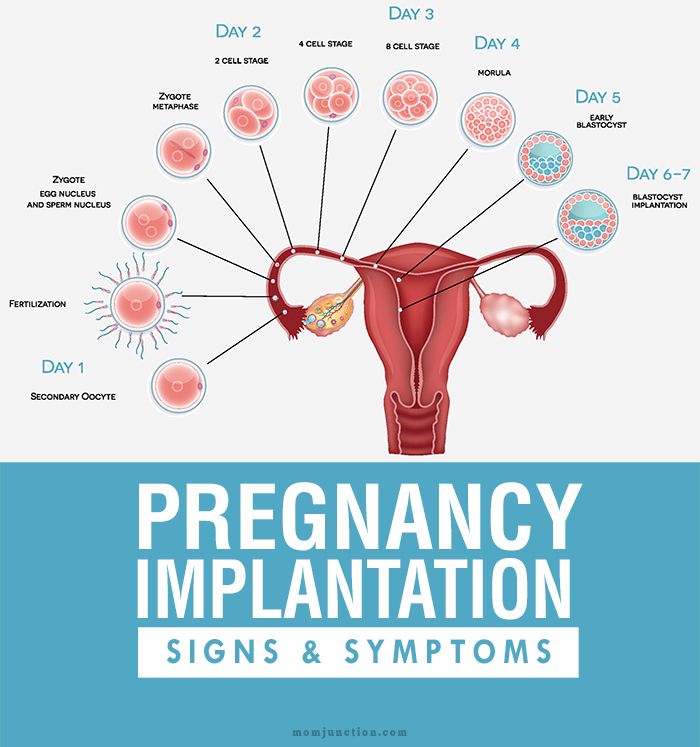 Your information is private and anonymous.
Your information is private and anonymous.
I'm not sure This field is required.
AGE This field is required.
Or call 1-800-230-7526
1 month pregnant { 1 - 4 weeks }
Pregnancy is a cardinal change not only in the body of a woman, but also in the psychological and moral state. And all these changes are driven by hormones.
There are general patterns of the first signs of pregnancy, fetal development and changes in the woman's body. Today we will tell you more about what happens in the first month after conception, how the fetus grows and about the condition of the woman herself.
In the first week of pregnancy, you are still living life “before” and do not even suspect that a new life has already been born and begins its 9- a month's journey into the world. A fertilized egg is actively moving through the tubes, transforming every day.
Changes in a woman's body
It should be noted right away that there are obstetric and embryonic reference dates.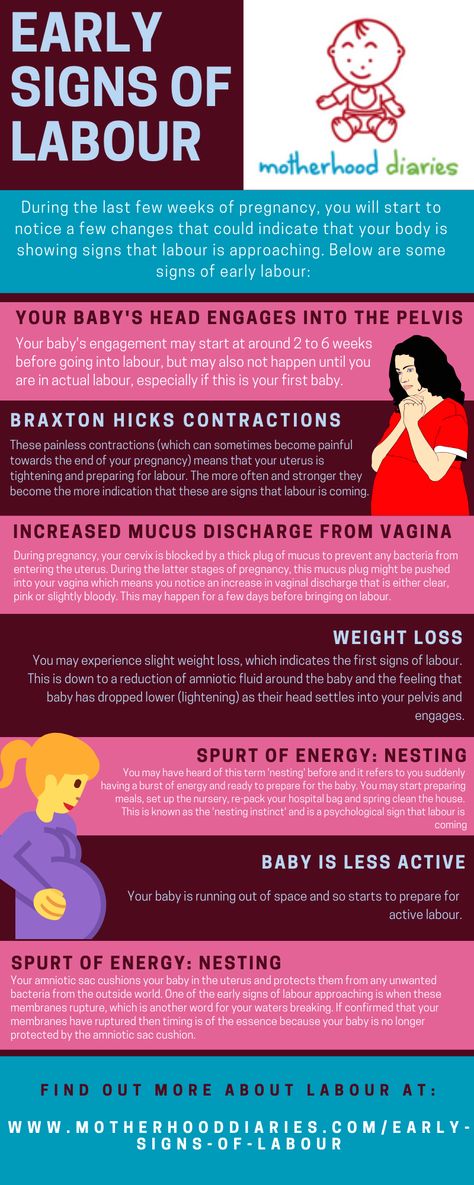 Doctors count weeks from the first day of the last menstruation, although there is no pregnancy as such at this time.
Doctors count weeks from the first day of the last menstruation, although there is no pregnancy as such at this time.
Embryonic begins from the moment of conception. You can find out if you remember the date of sexual intercourse or pregnancy occurred in the IVF program.
Usually, in the first week after conception, many women are not even aware of their pregnancy. But the body is already beginning to prepare for childbearing and childbirth, rebuilding to the needs of the baby.
The uterus becomes softer and looser from the inside, so that the embryo can more securely gain a foothold in the endometrium. The hormonal system also begins to rebuild.
Feeling and signs of pregnancy
Feelings of future changes can only be experienced by a lucky few. Basically, the woman does not care about anything.
Usually, the first signs of pregnancy are similar to premenstrual syndrome - the breasts slightly enlarge, become more sensitive, pulling pains appear in the lower abdomen.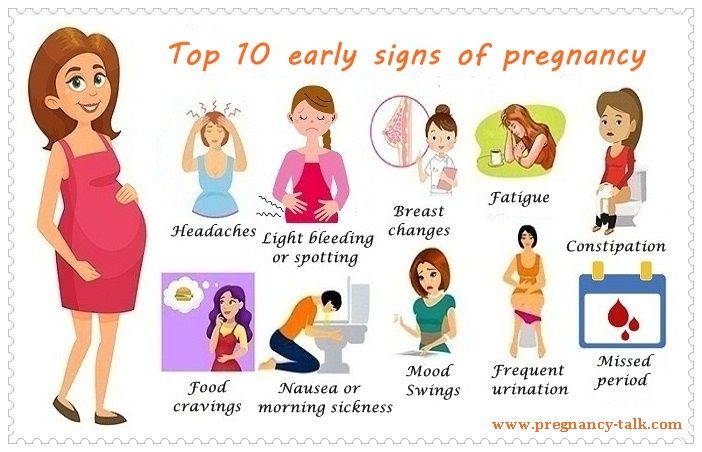 The lower back can hurt and appetite increases, irritability and slight drowsiness appear.
The lower back can hurt and appetite increases, irritability and slight drowsiness appear.
Signs of pregnancy in the form of morning sickness and reactions to odors are usually absent.
What happens to the fetus?
But real miracles happen to the embryo. The embryo moves this week through the fallopian tube towards the uterus. At the same time, a cluster of 8 cells, which are called blastomeres, turn into one ball. Later, the outer part will become the placenta, and the inner part will become the fetus. But this will happen only after a couple of weeks.
Recommendations for the first week
You need to monitor your health constantly. Gynecologists at the Ivymed clinic recommend preparing for pregnancy about six months before conception by starting to lead a healthy lifestyle.
In the first week, special attention should be paid to dental treatment, fungal diseases, problems with the uterine cavity and other “female” problems, try to avoid stress and crowds, sleep and eat well.
Usually this week you are not yet aware of the onset of pregnancy, but the body is already beginning to rebuild. The fetus, as such, has formed, it only reaches the uterus and becomes stronger.
What happens to a woman's body
In the second week after conception, the woman continues to "torment" the symptoms of the upcoming menstruation. But there is no delay - and there is no reason to “worry” either.
But the human chorionic gonadotropin (hCG) or “pregnancy hormone” is already actively beginning to be produced.
But rapid tests for early diagnosis of pregnancy are not yet reliable: there is not enough hormone in the urine for reliable results. But laboratory blood tests from a vein for hCG are more informative.
Sensations
In the second week, premenstrual symptoms usually continue, as in the first week. Since the hormonal system is already being rebuilt, the mood can change dramatically: from hysteria to violent joy. You may feel more tired and sleepy, even if you slept well.
The belly in the second week of pregnancy is not yet growing: the embryo is too small to somehow affect the size.
How the fetus develops
By the second week of pregnancy, the fetal egg is implanted in the uterus and fixed in it.
The future fetus contains about 200 cells, each of which is responsible for important functions - the development of organs, the formation of the fetus and other genetic information.
At this time, the foundations of vital systems are already being laid: chorion, amniotic stalk, amnion and primary yolk sac.
Advice for moms in the second week
Regardless of whether you feel the symptoms of pregnancy, you should give up alcohol, caffeine, nicotine, heavy physical exertion, stress.
If you haven't fixed your health problems, it's time to fix them. If you have not yet led a healthy lifestyle, it's time to pay attention to it.
To settle an unstable emotional state, take up swimming, yoga, walks in the fresh air.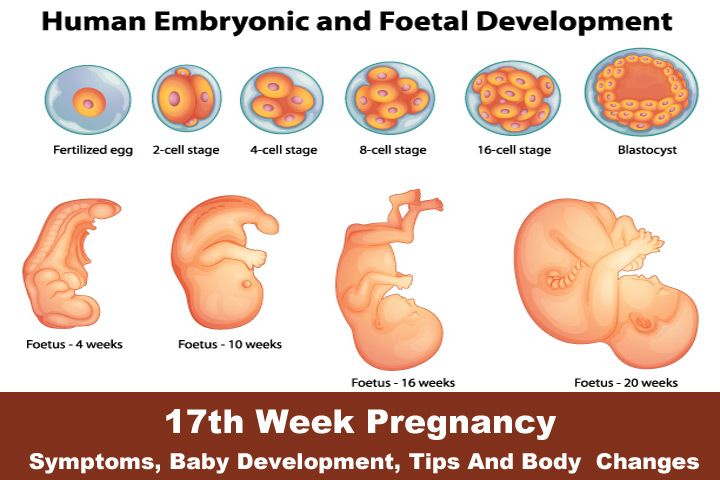 Try to sleep at least 8 hours.
Try to sleep at least 8 hours.
At the 3rd week of pregnancy you have a slight delay in menstruation, you begin to feel the first signs of pregnancy. There is a clear sense of "unusual" condition. But it is easy to confuse it with the harbingers of menstruation, especially if this is your first pregnancy.
What happens in the body at the 3rd week
It is often in the third week of pregnancy that women complain of elevated body temperature (up to 37.5), and their immunity is noticeably reduced. This all happens because the amount of hCG increases at week 3 in order to preserve the fetus.
The amount of estrogen also increases, which can lead to chest pain, dizziness and headaches.
Progesterone is no less active - it is engaged in "calming" the uterus, but it negatively affects the intestines. Heartburn, flatulence, bloating and constipation occur.
Feelings of a woman
At this time, a woman feels all the “charms” of pregnancy symptoms: morning sickness, change in taste preferences, severe fatigue and drowsiness, frequent urination, pain in the chest and lower abdomen, slight bloating.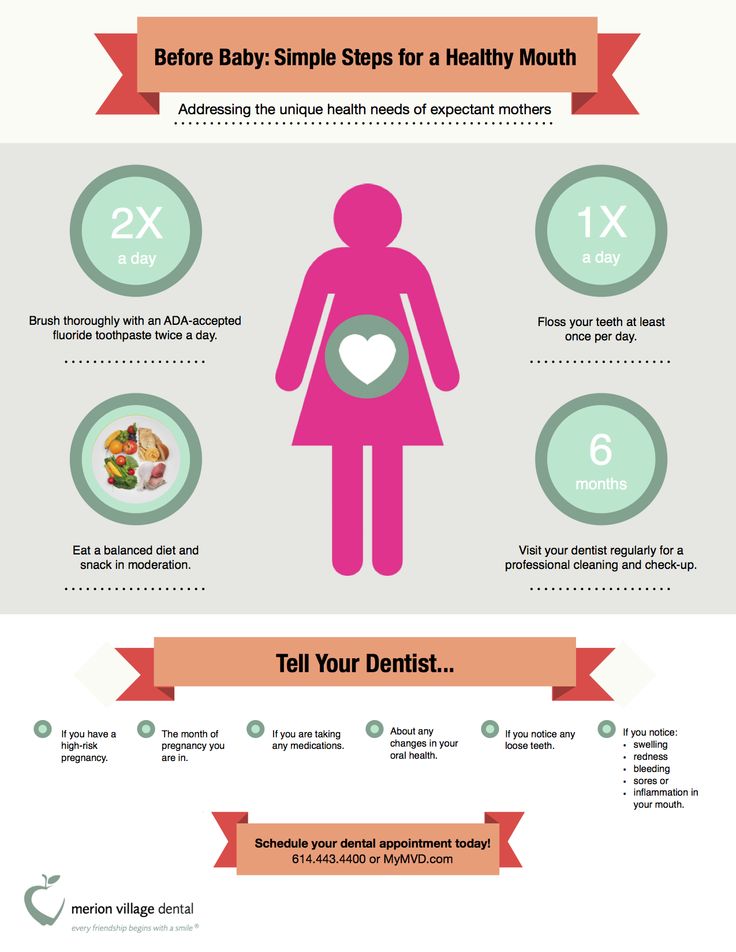
The belly itself at the 3rd week of pregnancy is not visible to others, but you may experience discomfort from previously beloved skinny jeans and rearrange the fastener in the belt one notch further.
Mood swings are now your "normal" state.
Development of the fetus in the third week
At this time, the future baby is already more like an embryo: the beginnings of the nervous, hematopoietic, and skeletal systems are laid. Future internal organs and bones are formed.
But the fruit is still small - its size reaches up to 2 mm, and weighs only one gram. On ultrasound in the third week, the fetus looks like a poppy seed.
Diet for the third week
Just like in the previous weeks, it is important to reconsider your lifestyle and give up alcohol and tobacco without fail. All this can then affect the baby and his health.
The 3rd week of pregnancy in a woman's life should be calm: without heavy physical and moral stress, hypothermia and overheating.
The diet at this time should be significantly revised if you have not previously been an adherent of a healthy diet. Now it is important to have a balanced diet rich in vitamins and minerals.
If necessary, your gynecologist at the Ivimed clinic may prescribe an additional complex of supplements or individual elements, such as folic acid.
It is characterized by all the same signs as in the third week, only menstruation still does not occur, and the symptoms of pregnancy are getting brighter.
What happens in the mother's body
The belly is still not noticeable, but the breasts increase significantly in size. This is how the body prepares for lactation. The nipples may darken.
Hormones continue to “rage”, which is why the expectant mother has problems with the intestines and digestive organs.
If red or brown discharge appears at this time, you need to urgently consult a doctor - the risk of miscarriage this week is very high.
What a woman feels
Symptoms of pregnancy become clearer: pronounced toxicosis, severe fatigue.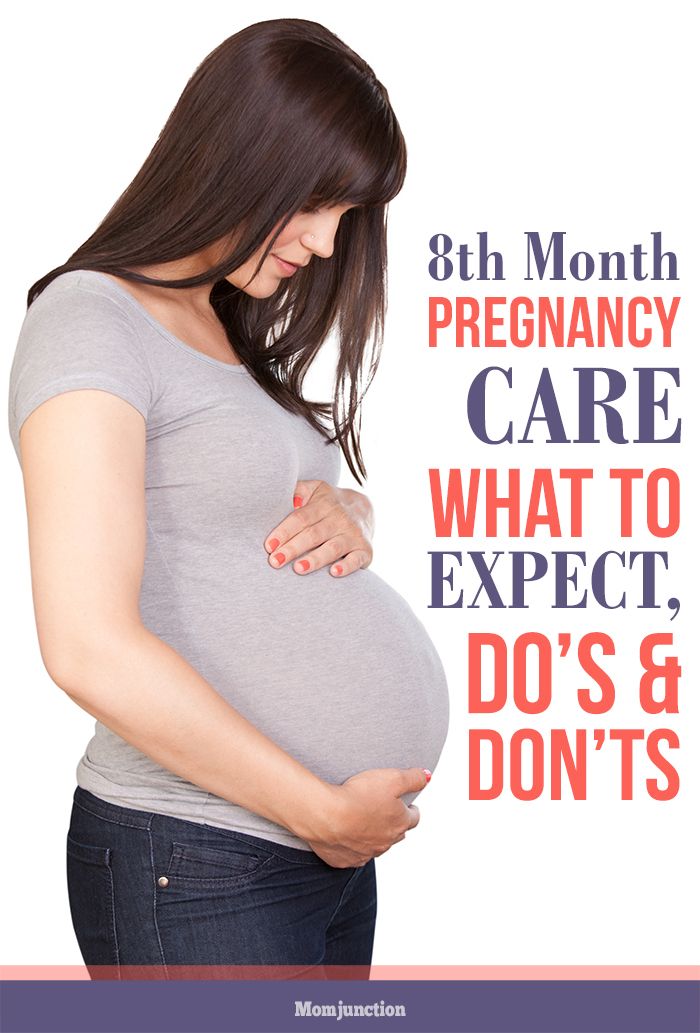 Drawing pains in the lower abdomen and more abundant (not bloody!) Discharge is the norm.
Drawing pains in the lower abdomen and more abundant (not bloody!) Discharge is the norm.
The chest continues to grow and therefore delivers a lot of unpleasant moments. Many women note the inability to sleep on their stomach due to the grown and painful breasts.
Taste addictions can shock others and drive family members crazy. But here it is important to remain calm and remember that this will soon pass.
Dimensions of the baby at 4 weeks
The future baby is still small, but he already has a single-chamber heart, the formation of internal systems and organs continues. At this time, the intestines and reproductive system are born.
You can already see it on ultrasound. what the fetus looks like at week 4 - this is the fetal egg, where the embryo is formed and hear the baby's heartbeat.
But ultrasound is usually done at this time if there are fears of an ectopic or multiple pregnancy, a threat of abortion.
Tips and advice
Doctors recommend:
- eat in small portions, but more often
- eat cookies or a couple of nuts without getting out of bed
- use mints, lemon or mandarin wedge
- drink tea with ginger, which is good for removing nausea
- eat more protein
- more rest
- avoid hypothermia and reduce physical activity
However, if you feel great, then just continue to enjoy the new position and take care of your health and your baby!
Want to make an appointment for
?
whether there are periods, why the stomach hurts, the development of the child, the first symptoms and sensations
After conception, changes begin in the woman's body, by which one can guess that pregnancy has come.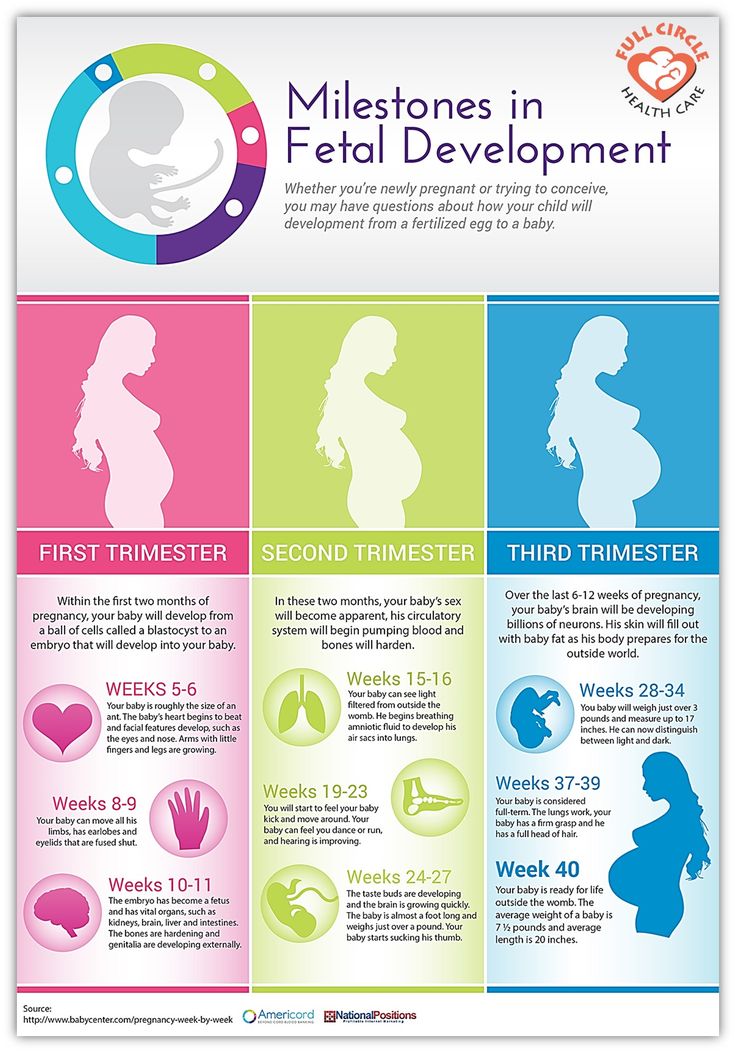 At first, the expectant mother may feel the usual malaise. But the emergence of more and more new signs suggests: it's time to do a test and visit a gynecologist.
At first, the expectant mother may feel the usual malaise. But the emergence of more and more new signs suggests: it's time to do a test and visit a gynecologist.
Day after day, the body of a woman carrying a child prepares for the fact that now he will have to work for two. About what symptoms indicate the onset of pregnancy in the first month, how the child develops during this period and what the expectant mother should prepare for, we deal with obstetrician-gynecologist Tatyana Smirnova .
Determination of the gestational age
The formula is simple: the gestational age is counted from the first day of the last menstruation. For example, on May 5, a woman began her period, and on June 20 she comes to the doctor due to a two-week delay.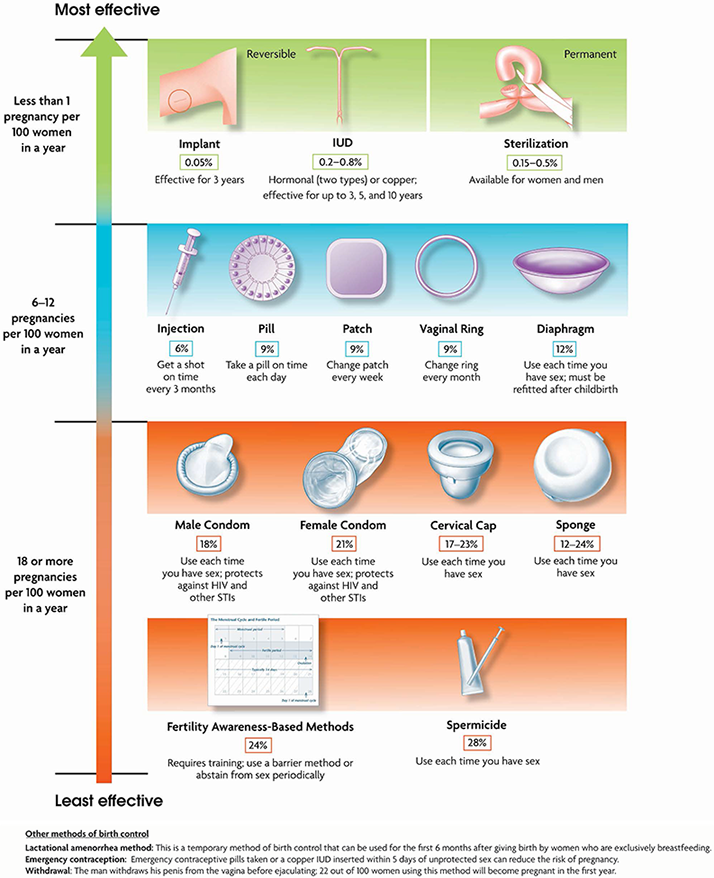 The doctor conducts an examination, after which confirms the pregnancy. This is indicated by an enlarged uterus, changes in the mucous membrane of the vagina and cervix. Also, at the first appointment with a gynecologist, you can determine the period. As a rule, it is 4-5 weeks (1).
The doctor conducts an examination, after which confirms the pregnancy. This is indicated by an enlarged uterus, changes in the mucous membrane of the vagina and cervix. Also, at the first appointment with a gynecologist, you can determine the period. As a rule, it is 4-5 weeks (1).
Key facts about the first month of pregnancy
| Menstruation | Stops. Small spotting is possible, which indicates that the embryo is implanted in the lining of the uterus. |
| Woman's behavior | Irritability or tearfulness may appear. Many women pay attention to changes in taste preferences, a different perception of smells appears. |
| External signs | Not noticeable. In some women, by the end of 1 month of pregnancy, pigmentation and the first stretch marks on the abdomen may appear. |
| Pain | A pregnant woman may feel pain in the lower abdomen when a fertilized egg approaches the uterus. |
| Stage of development of the child | Embryo |
Symptoms, signs and sensations
To determine the duration of the pregnancy, doctors consider presumptive and probable signs.
Suspected include:
- changes in appetite, taste, smell,
- nausea and vomiting, salivation,
- weakness, malaise,
- irritability and tearfulness,
- dizziness and headaches,
- insomnia,
- deposition of subcutaneous fat,
- stretch marks on the abdomen,
- skin pigmentation (on the face, along the white line of the abdomen, in the area of the nipples and external genitalia).
It is not only pregnant women who may experience these symptoms. But for the doctor, they have diagnostic value, because some of them occur before the objective signs of pregnancy.
Probable signs objectively confirm pregnancy: in women of childbearing age, menstruation suddenly stops, the mammary glands, uterus, and vaginal mucosa change.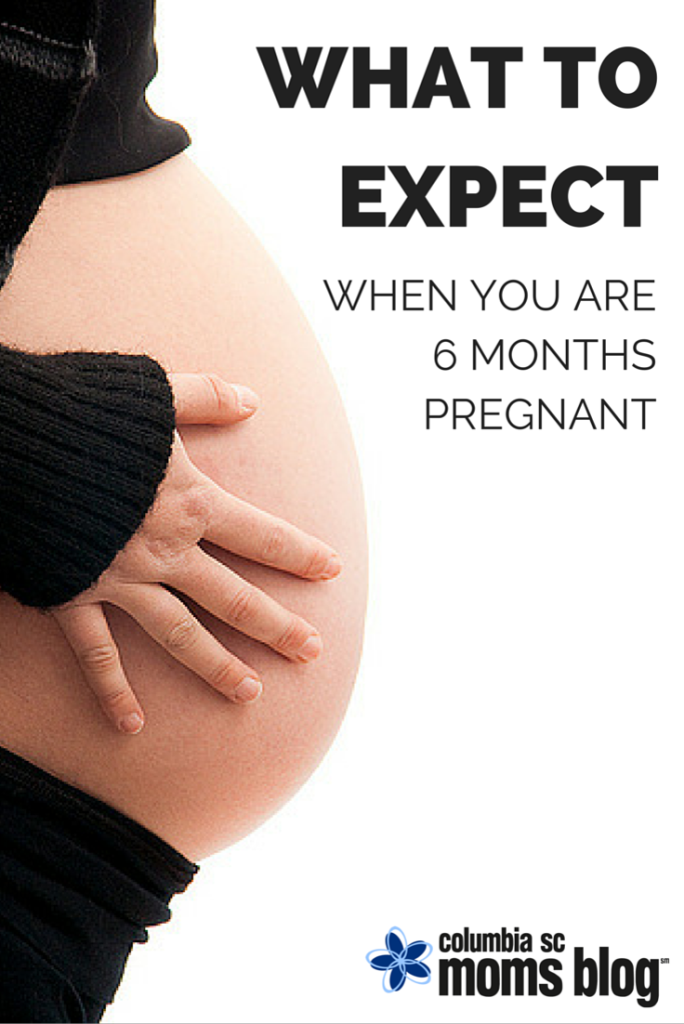 Let's dwell on them in a little more detail.
Let's dwell on them in a little more detail.
Breast changes
The mammary glands are enlarged. When pressed, a clear liquid is released from the nipples - colostrum.
Changes in internal organs
The uterus at 1 month of pregnancy increases to the size of a chicken egg. The cervix becomes drier. The mucous membrane of the vagina and cervix becomes bluish and becomes more loose.
Pain
During this period, the abdomen may ache as the uterus prepares to receive a fertilized egg that moves towards it to gain a foothold in the cavity. Round uterine ligaments are located on the front wall of the uterus, they begin to stretch, the uterus increases, and therefore the woman feels pain in the lower abdomen. This is not a threat of termination of pregnancy, but a variant of the norm (2).
Is there a period in the first month of pregnancy
Normally, a pregnant woman should not have menstruation.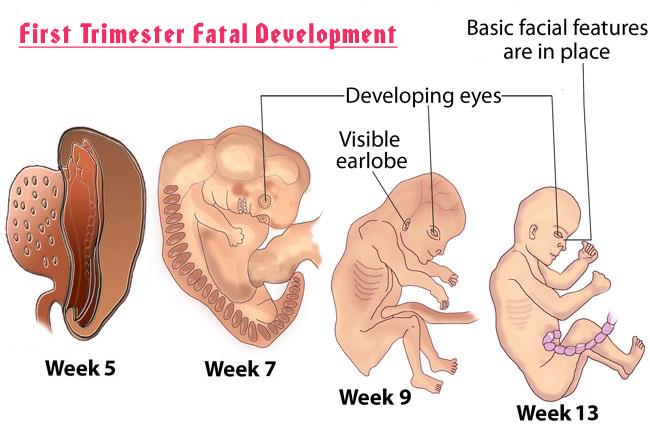 Some people have spotting for several months or even during their entire pregnancy. This is a menstrual-like reaction, but not menstruation.
Some people have spotting for several months or even during their entire pregnancy. This is a menstrual-like reaction, but not menstruation.
How the belly looks like
In the first month of pregnancy, a woman relies more on sensations: external manifestations are not yet bright enough or are completely absent. For example, in the early stages, the stomach does not increase. It begins to grow by 12-14 weeks, when the uterus rises to the level of the womb.
Photo: pixabay.comChild development in the first month of pregnancy
The embryonic period of development lasts from the moment of fertilization to 8-9 weeks of gestation, when the embryo acquires human-specific features (3).
1st week of pregnancy
During this period, follicles mature in the ovaries, one of which will contain the very fateful egg.
There is no embryo yet, but serious preparatory work is underway for its appearance: the uterine cavity is cleared of the endometrium, which was not useful in the last cycle, vesicles-follicles with developing eggs inside ripen in the ovaries.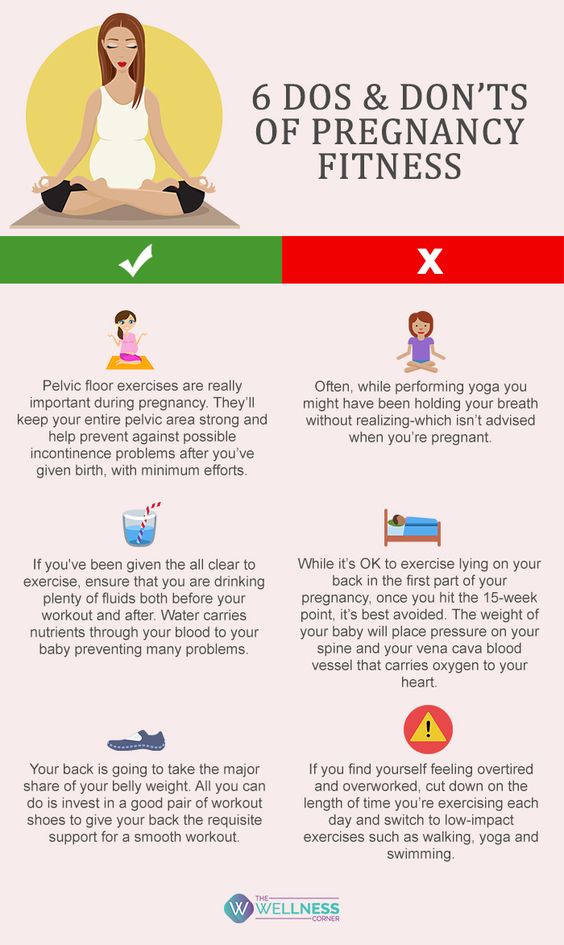
Learn more
2 weeks pregnant
Still no baby. But the process of its origin is rapidly going on. The most active follicle ruptures and releases an egg ready for fertilization. And when the fastest and most tenacious sperm reaches this mature egg, it breaks through its membrane, the nuclei of male and female cells merge and a new life is conceived.
Learn more
3rd week of pregnancy
During this period, the germinal disc with the primary streak is formed - from many cells that are constantly dividing and developing. The size of a fertilized egg at the 3rd week of pregnancy is about 0.13 mm.
Learn more
4th week of pregnancy
By the beginning of the 4th week, the fetal egg enters the uterine cavity, attaches to its wall and continues to develop. The embryonic disk acquires a cylindrical shape, the head and tail of the embryo are formed. By the end of the 28th day, a bend of the body appears, the length in the back reaches 4-5 mm.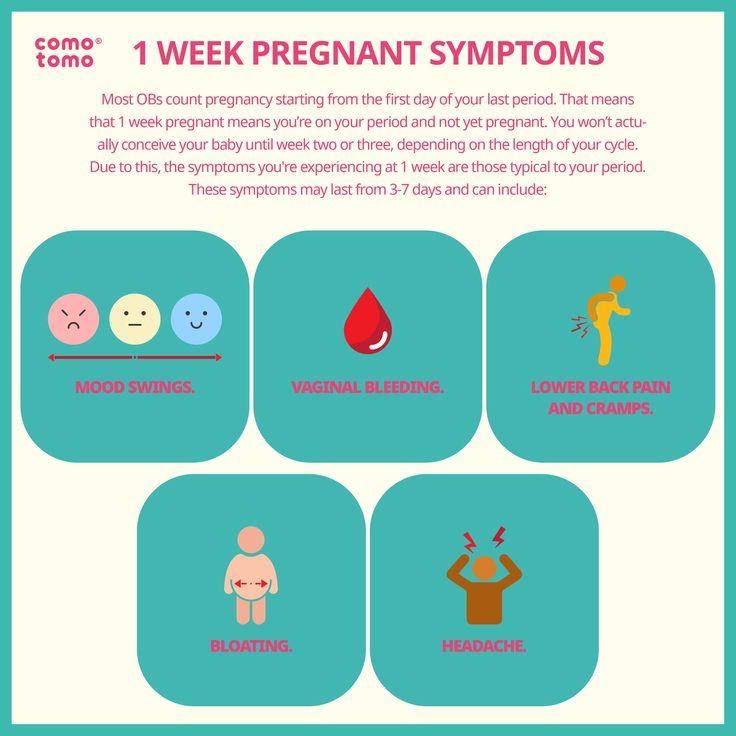
Learn more
Examinations in the first month of pregnancy
At the first visit of a pregnant woman, the doctor gets acquainted with her anamnesis, then proceeds to an objective examination: pays attention to the physique and weight of the woman, the condition of her skin, visible mucous membranes, measures temperature, height and body weight, blood pressure, evaluates the condition of the mammary glands and nipples, the presence of colostrum separated from them.
Other methods are used to confirm pregnancy.
Gynecological examination using speculums
This is the simplest and at the same time indispensable method. Even in early pregnancy, it allows you to see the characteristic changes in the mucous membrane of the vagina and cervix.
Pregnancy test
Pregnancy confirmation method is suitable if the period is very short and there are doubts about conception. Modern tests are highly informative, and even with a few days of delay, they show that there is a pregnancy.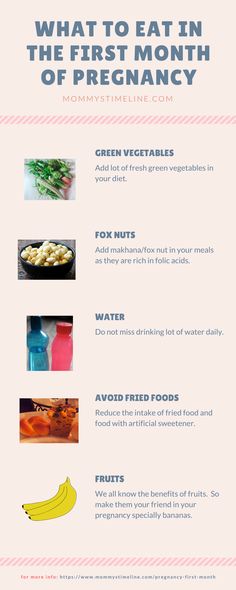
Tests
At an early stage, it is important not to miss an ectopic pregnancy, when implantation does not occur in the uterine cavity, but in the tube or cervix. The signs are similar: at first, it may not differ from a normal pregnancy. Therefore, a blood test for the determination of hCG, the hormone of human chorionic gonadotropin, plays an important role here. With an ectopic pregnancy, its level is lower than expected at this time.
All tests necessary for a woman in each individual case are prescribed by a doctor: a smear for STIs and others.
Photo: MART PRODUCTION, pexels.comUltrasound
Ultrasound diagnostics is an informative and safe examination method even at early stages. On ultrasound, the embryo is clearly visible, which is fixed in the uterine cavity. Ultrasound research methods are used to diagnose pregnancy and its timing. And also in case of complications of pregnancy and fetal development.
Do's and Don'ts for an expectant mother
“A pregnant woman can live a normal life,” says obstetrician-gynecologist Tatyana Smirnova. “But we need to reconsider and change what can affect the health of the child and the woman herself and complicate the course of pregnancy. This applies to both nutrition and lifestyle.
“But we need to reconsider and change what can affect the health of the child and the woman herself and complicate the course of pregnancy. This applies to both nutrition and lifestyle.
Healthy food
Pregnant women are advised to lean on vegetables and fruits, mainly grown in their region of residence. Citrus fruits are undesirable - they can cause allergic reactions and set the stage for diathesis in an unborn child.
Useful: herbal teas (if you are not allergic to herbs), vegetable soups and salads, buckwheat porridge. The consumption of sweets should be reduced. Chocolate, coffee, hot spices are not recommended.
Getting rid of bad habits
It will not be superfluous to repeat: the future mother should refuse alcohol and cigarettes. The potential harm is great and the risks are beyond doubt.
We treat teeth and chronic diseases
Contrary to common stereotypes, it is possible and necessary to treat teeth during pregnancy.
Dental disease is a potential foci of infection that can be bad for a child. They definitely need to be eliminated.
They definitely need to be eliminated.
For the same reason, it is necessary to treat chronic tonsillitis and tonsillitis. If there are diseases not related to gynecology (liver, heart, stomach, etc.), they should ideally be dealt with before conception, and during pregnancy, if necessary, be observed by narrow specialists.
Postponing cosmetic procedures
It is not recommended even to dye your hair during pregnancy, because chemical components penetrate the woman's body and can have a negative effect. It is advisable to use less cosmetics, limit cosmetic procedures using active chemicals and hardware technologies. Undesirable massage of the lower back, anterior abdominal wall during pregnancy.
You can sunbathe
Sun exposure in reasonable amounts is good. The body receives vitamin D, necessary for the prevention of rickets, the protection of bone tissue. Just do not abuse the sunbathing!
We dose physical exercises
You can go in for sports in the first month of pregnancy if there is no threat of miscarriage and other problems.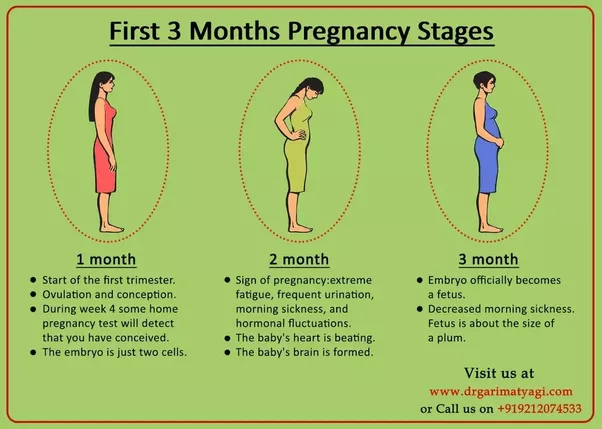 But exercises should not strain the anterior abdominal wall.
But exercises should not strain the anterior abdominal wall.
Highly recommended special gymnastics to strengthen the muscles of the pelvic floor, for a better stretching of the perineum. It is better to swim in the sea than in pools, where reagents that are undesirable for the health of a pregnant woman can be used to purify water. The safest, but at the same time useful activity is walking. This is good for the muscles of the pelvic floor and perineum. You can just walk around the house on tiptoes, sit on a gym ball.
Frequently Asked Questions
During the first month of pregnancy, most women have a variety of questions. Including many are worried that, not knowing about the "interesting" situation, their actions could harm the health of the child. Obstetrician-gynecologist Tatyana Smirnova answers questions, dispelling popular fears and doubts.
How to cope with toxicosis?
The term "toxicosis" in the medical community is considered obsolete. Now they say "drooling, vomiting." But the essence does not change: in the early stages, progesterone (yellow body of pregnancy) is produced in the ovaries, due to which vomiting occurs. The simplest remedy against it is alkaline drinking. It can be either mineral water or a solution of baking soda (1 teaspoon per glass of boiled water) 2-3 times a day. When the placenta is formed and progesterone starts to be produced in it, this nausea will pass. This usually happens by 16 weeks even without treatment.
Now they say "drooling, vomiting." But the essence does not change: in the early stages, progesterone (yellow body of pregnancy) is produced in the ovaries, due to which vomiting occurs. The simplest remedy against it is alkaline drinking. It can be either mineral water or a solution of baking soda (1 teaspoon per glass of boiled water) 2-3 times a day. When the placenta is formed and progesterone starts to be produced in it, this nausea will pass. This usually happens by 16 weeks even without treatment.
Is it dangerous to drink alcohol in the first month of pregnancy if you do not know about your condition?
It's okay if it happened out of ignorance. The main thing is to stop drinking alcohol when you already know about your pregnancy. In Europe, pregnant women are allowed some dry wine. And our doctors of the old school even treated toxicosis with champagne - a teaspoon 5-6 times a day.
Is it possible to have sex in the first month of pregnancy?
Possible.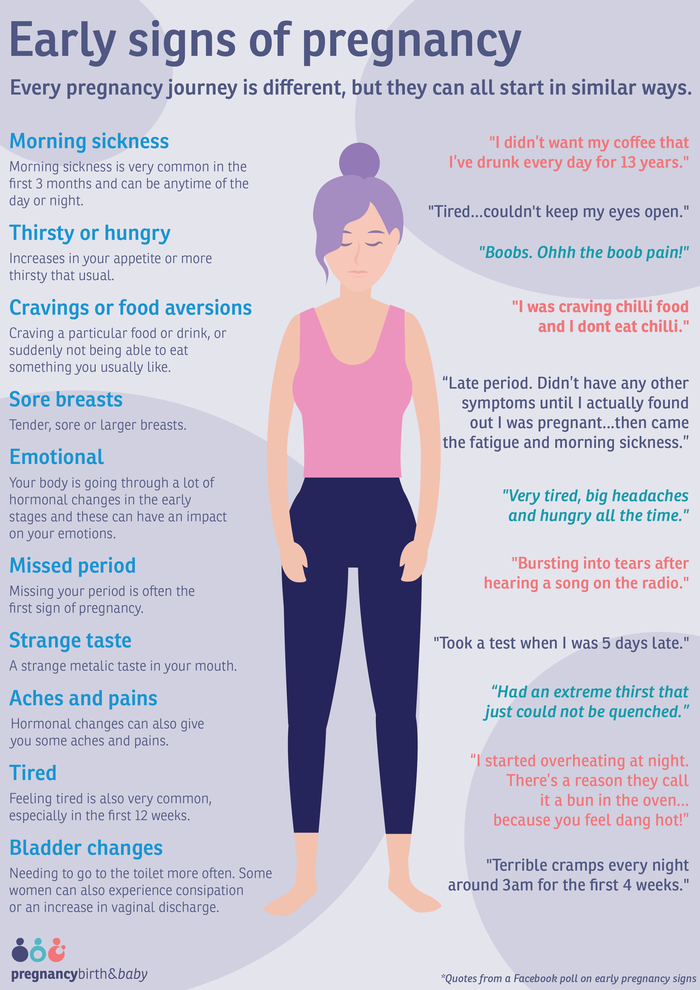 These are positive emotions and relaxation for a woman. But everything is individual. If there is a threat of miscarriage, severe illness in a pregnant woman, it is necessary to limit sexual life for some time. If there are no contraindications, sex should be with a condom and without fanaticism.
These are positive emotions and relaxation for a woman. But everything is individual. If there is a threat of miscarriage, severe illness in a pregnant woman, it is necessary to limit sexual life for some time. If there are no contraindications, sex should be with a condom and without fanaticism.
How much weight can you gain in the first month of pregnancy?
Weight gain should not exceed 200 g per week. For the entire pregnancy - 10-12 kg and no more. Therefore, nutrition must be controlled.
What drugs can and cannot be taken during the first month of pregnancy?
Of the drugs for the treatment of arterial hypertension, enaloprils are undesirable, and of anti-inflammatory drugs - sulfadimesines. In diabetes mellitus, tablet preparations are not recommended to lower blood sugar levels - they contribute to disruption of uterine placental blood flow. Of the antibiotics, doxycycline, fluoroquinolone drugs are undesirable.
Laxatives are not recommended: they increase intestinal motility and increase uterine tone.